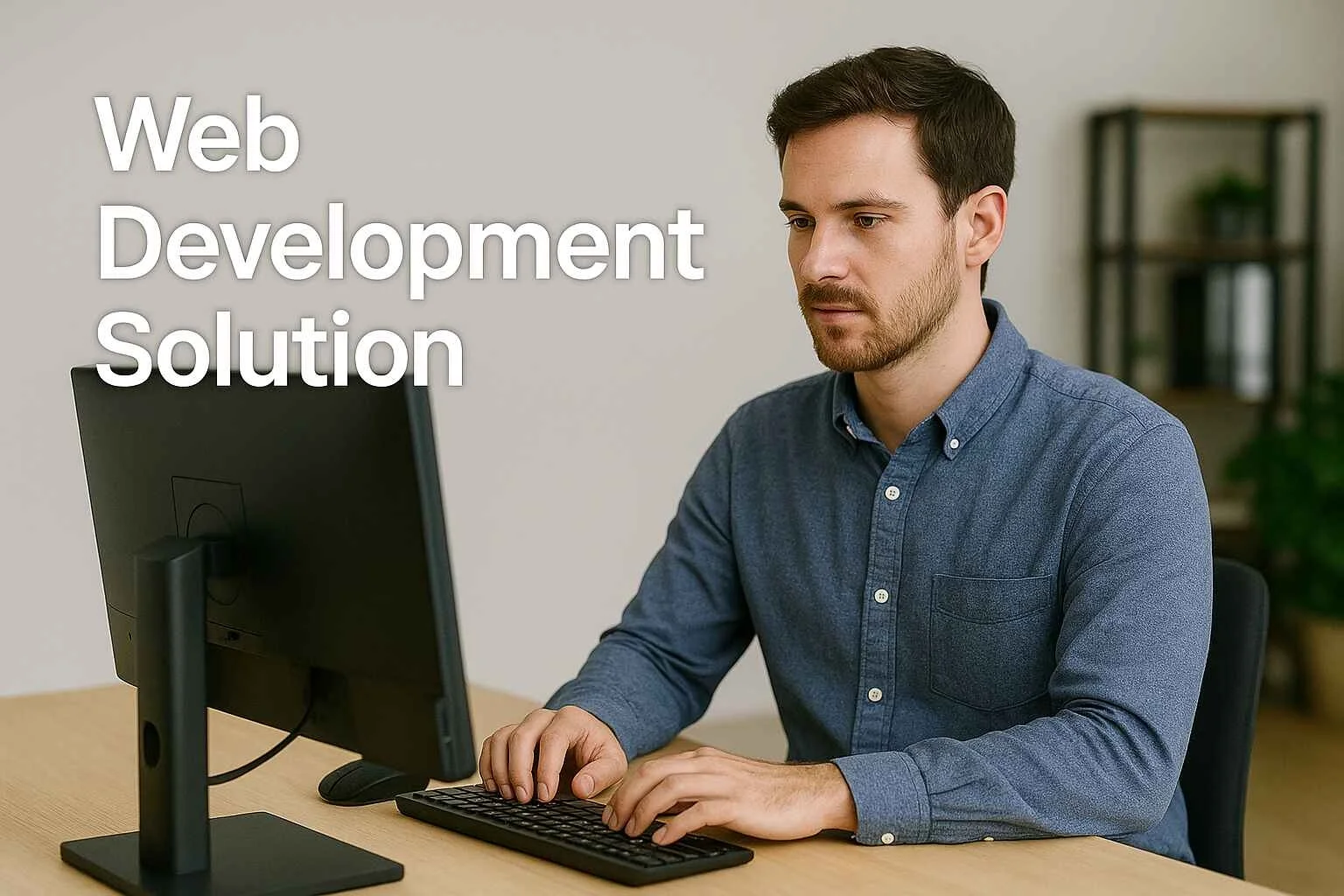Understanding What a Web Development Solution Really Means
Static vs. Dynamic Websites – What's the Difference?
A static website shows the same content to every visitor and is simple to create. On the other hand, a dynamic website can pull data from databases and change content depending on who’s visiting. If you’re running an online store or any kind of user portal, a dynamic web development solution is the way to go.
Frontend, Backend, and Full-Stack – Who Does What?
The frontend is what users see—the design, navigation, and overall user experience. The backend is the engine that powers everything behind the scenes—databases, servers, and business logic. A full-stack web development solution covers both, which is ideal if you want everything managed under one roof.
Factors That Influence the Best Web Development Solution for You
-
Budget Considerations and Long-Term Value
Sure, you can get a basic website for cheap. But if you’re planning to scale or need features like e-commerce or user accounts, investing in a robust web development solution upfront can save you money and headaches later. Think of it as buying a sturdy backpack for a long hike—it’s worth spending more now so it doesn’t fall apart midway.
-
Business Size, Industry, and Goals
A local bakery doesn’t need the same web development solution as a multinational corporation. Think about what your business actually needs. Do you want to integrate online payments? Track user behavior? Offer chat support? Your goals should dictate your tech stack.
-
Technical Skill Level of Your Team
If your internal team has limited technical knowledge, you’ll need a web development solution that’s user-friendly. Content Management Systems (CMS) like Wix or WordPress offer simple interfaces for non-techies. But if you have a tech-savvy crew, a more complex solution might unlock greater customization and control.
-
Timeline and Speed of Deployment
Some businesses need a quick launch—say, for a product drop or a seasonal campaign. In that case, choosing a web development solution that supports rapid deployment is key. CMS platforms or pre-built templates can go live within days, while custom builds might take weeks or even months.
Exploring Different Types of Web Development Solutions
-
Custom Development vs. CMS-Based Solutions
Custom-built websites are like tailored suits—they fit you perfectly but cost more and take time. CMS platforms like WordPress or Shopify offer faster setups and lower costs. A web development solution built on CMS might be perfect for blogs or small businesses, while custom code is best for complex operations.
-
Open Source vs. Proprietary Technologies
Open-source solutions offer flexibility and community support. Proprietary tools might provide better support or specific functionalities but could lock you in with a vendor. Weigh the pros and cons carefully when selecting your web development solution.
How to Choose the Right Development Partner
-
In-House Team, Freelancer, or Agency?
Hiring in-house gives you full control but is costly. Freelancers are affordable but may lack scalability. Agencies often offer the best of both worlds—a team with diverse skills ready to build a complete web development solution tailored to your goals.
-
What to Ask Before Signing a Contract
Ask about experience with your industry, support options, scalability, and timelines. Also, make sure you retain full ownership of your website. A clear agreement ensures that your web development solution doesn’t turn into a nightmare later.
Common Mistakes to Avoid While Selecting a Web Development Solution
-
Ignoring Scalability and Future Growth
Maybe your site is simple now, but what happens when traffic doubles? Or when you want to add new features? Your web development solution should be built with tomorrow in mind, not just today.
-
Overlooking SEO, Security, and User Experience
A flashy site that loads slowly or lacks basic security can tank your business. Any good web development solution should include solid SEO foundations, mobile responsiveness, and top-notch security protocols. Don’t let these get lost in the design process.
Conclusion
The perfect web development solution isn’t about following trends—it’s about aligning with your specific needs. Whether you're a startup trying to get off the ground or an established business ready to scale, your website is your digital handshake. Make it strong, make it reliable, and most importantly, make it yours. Choosing the right web development solution is an investment in your brand’s future. So, take your time, do your homework, and don’t settle for less than what your business deserves.
FAQs
Q1. What is the most cost-effective web development solution for small businesses?
A CMS-based solution like WordPress is often the most budget-friendly option for small businesses, offering flexibility and ease of use.
Q2. How do I know if a custom web development solution is right for me?
If your business requires unique functionalities or tight integration with other systems, a custom solution might be worth the investment.
Q3. Can I change my web development solution after launching my site?
Yes, but migrating from one solution to another can be time-consuming and expensive. It's better to choose the right solution from the start.
Q4. Is SEO part of a web development solution?
It should be. A complete web development solution often includes SEO-friendly structures like fast loading speeds, mobile optimization, and proper HTML tagging.
Q5. What role does user experience play in selecting a web development solution?
A massive one. A user-friendly site keeps visitors around longer and converts better. Your web development solution should prioritize user experience from the beginning.
Source: https://diigo.com/0101khn






